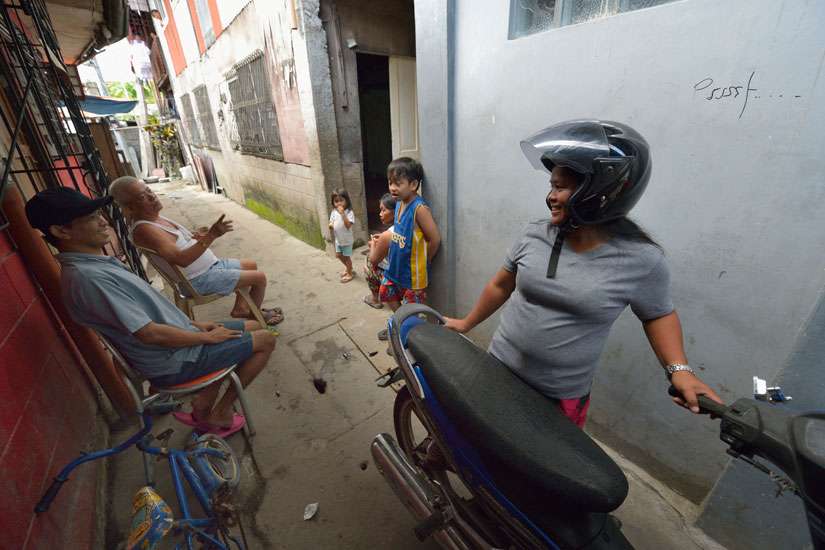In Barangay 60, just south of Tacloban City's downtown, a political rivalry between two women who used to be close allies played itself out in an election a week before Haiyan struck.
Milagros Baoi, a former barangay -- or neighborhood association -- chairwoman, had lost her re-election bid to Violeta Romano, already a three-time chairwoman. During those three terms, Baoi had served as Romano's second-in-command and called Romano her mentor.
The two women told Catholic News Service their political competition never turned personal, but their constituents started drawing lines of separation that made it look like a bitter rivalry.
Without going too deep into the details Baoi, a Catholic, said she felt hurt and angry at God after the election and asked why things turned out the way they did. But the questioning did not last too long because Haiyan hit with 195 mile-per-hour winds and storm surges as high as 15 feet. Most of the 7,300 dead or missing came from Tacloban, casualties of the tsunami-sized waves that walloped its coastline.
Baoi said as the water quickly rose she took residents to the three-story barangay hall, asking Romano for permission to relocate them. She said Romano's answer was an embrace and the two moved to try to save as many people as possible.
Romano, 72, said: "We just always want to be an example for our constituents, that we do get along and we do work together. We have to work well together."
Baoi is a designated community ambassador for a Catholic Relief Services program to "build back better" or to make sure houses are sturdy enough to withstand powerful storms and to determine whether they will serve as transitional shelters or permanent homes. But residents have to do their part to meet some requirements, such as having the necessary documents for home ownership or a lease, and they are given a cash incentive for meeting those requirements.
Baoi now works closely with Romano to make sure the community's questions and their understanding about the different components of the program are met.
On a smaller scale, two neighborhood women also came together after the storm. For 14 years, Maria Dablo and Luming Garcia, who used to be good friends, did not say a word to each other, not even a "hello." The two women lived a few houses away from one another.
Dablo and Garcia also worked at the market selling the same types of rice cakes at vendor stalls next to each other. The two women with similar haircuts and the same big smiles told CNS that they hid their mutual dislike so well that most people did not even realize they were enemies.
Dablo said as Haiyan's winds howled she pleaded with God.
"I said 'Lord, whatever my sins may be, please forgive me. Whoever is not a friend of mine I can fix it, just give me a chance to live,'" recalled Dablo, a Catholic.
The storm passed and both their families and their homes remained mostly intact.
Soon after, the two women participated in a Buddhist foundation's program that paid residents to clean up the impenetrable debris in their neighborhoods. The idea was to try to get life back to normal as quickly as possible.
That was when Dablo walked up to Garcia and said, "Let's be friends" and opened her arms to hug her. Garcia gladly returned the embrace and they quickly fell into their old, close friendship. They said they do not even remember what their fight was about.


